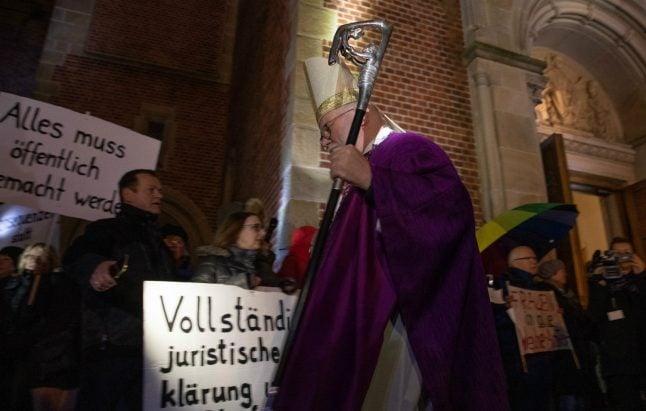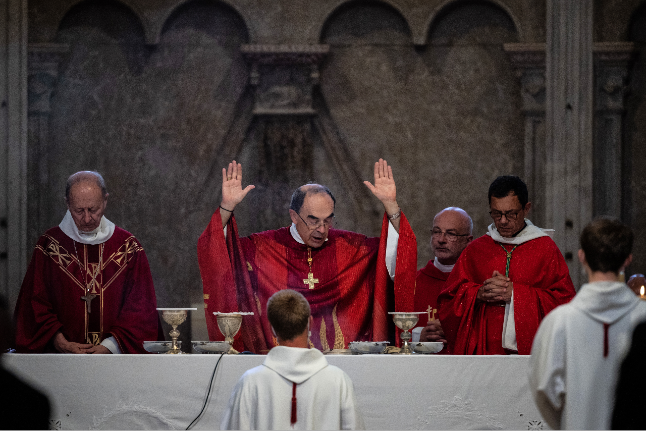As in Australia, Chile, France, Ireland and the United States, Germany's Catholic Church has had to admit to abuses by predator priests and clergy and their systematic cover-up over decades.
SEE ALSO: German Catholic Church apologizes as scale of child abuse laid bare
“We carry responsibility toward those affected around the world — no-one among us can still negate the problem or treat it as a taboo,” said Cardinal Reinhard Marx, head of the German Bishops' Conference.
To the thousands of German victims and to other critics, Marx said, “we see and hear you … we have understood”, speaking at the end of a four-day episcopal conference in the western city of Lingen.
The era of silence “is over”, he stressed weeks after a Vatican conference also addressed the issue, and he admitted that it should have been dealt with “perhaps 20 years, 30 years ago”.
But Cardinal Marx also cautioned that “the process of cleansing is not finished in three days, it's a continuing path”, and offered no timetable for concrete reforms.
Matthias Katsch of the main victims group Eckiger Tisch welcomed the general sentiment of more openness but stressed that “what we're missing is clear words on the issue of helping, in particular on the compensation of victims”.
“The Church keeps stonewalling on compensation,” he said in a statement, adding that “the truth is that the bishops are scared — rightly — that very, very many people will insist on compensation”.
SEE ALSO: Homosexuality at fault for child abuse, not Catholic Church, says German cardinal
Victims not invited
The Catholic Church — Germany's biggest religious community with 23 million followers — has apologized and pledged a series of steps, from owning up to past crimes to compensating victims and preventing abuses in future.
German bishops have also debated possible changes to Catholic dogma and traditions, including the training of priests to the role of women.
The bishop charged with addressing the child abuse crisis, Stephan Ackermann, said the Church was seeking to find an “unbureaucratic” way to compensate victims and to build prevention and monitoring systems.
The Church had so far received 1,900 applications for “benefits in acknowledgement of suffering”, he said Wednesday.
The main victims group, Eckiger Tisch, has urged the Church to bring in independent experts for a more thorough audit, to involve victims in the effort and to take speedy steps to compensate those who have suffered.
“We would gladly have presented our demands to the bishops directly and in person, but we were not invited,” said its head, Matthias Katsch.
SEE ALSO: 'Celibacy is not a dogma': German Catholic Church to examine practices
'Turn the lights on'
Some 300 protesters Monday rallied outside the conference, chanting “turn the lights on” and symbolically illuminating the church facade with hand-held torches.
The rally, organized by the Catholic Women's Community of Germany, handed over a petition with 30,000 signatures calling for far-reaching reforms, including giving women a greater role in the Church.
Germany's biggest abuse clusters have included a Berlin elite Jesuit school and the world-famous Catholic choir school the Regensburger Domspatzen where more than 500 boys suffered sexual or physical abuse.
Overall, most victims were boys and more than half were 13 years old or younger, the study last year concluded.
Predator priests were often transferred to another parish, which was usually not warned about their criminal history.
Only about one in three were subject to disciplinary hearings by the Church, and most got away with minimal punishment.
Only 38 percent were prosecuted by civil courts.
By Frank Zeller



 Please whitelist us to continue reading.
Please whitelist us to continue reading.
Member comments